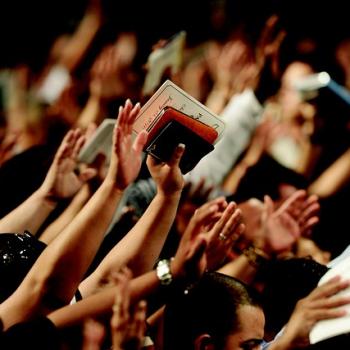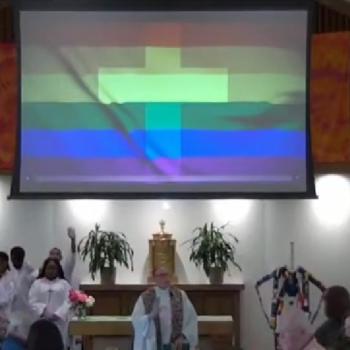And then there is Proverbs 22:9: "The good-eyed one is blessed, because they give their food to the poor." NRSV reads "the good-eyed one" as "generous." Okay, I suppose, though I rather like the "good-eyed one," the very literal reading. I picture a person who casts her eye with benevolence on all, and because she does that, she shares what she has with the poor. I imagine that this benevolent soul is to be contrasted with that iniquity-sower and angry one of the preceding verse. But still, verse 8 cannot be affirmed universally, though one may hope that verse 9 is a description of an increasing tribe.
Finally, Proverbs 22:22-23 returns to the hope for justice enshrined in 22:8: "Do not steal from the poor; they are after all poor! Do not crush the afflicted in the gate, because YHWH will take you to court and will rob their robbers' lives!" It is particularly despicable to steal from the poor, since they have so little anyway. The result of such actions will lead to YHWH's direct rebuke; YHWH will stand up in the court and will rob the very lives from those who dared to rob the afflicted in the gate, the place of justice in the land of Israel. It is the hope of Israel always to find justice for the poor and afflicted, but we can imagine that such justice in the face of power and wealth was never easy to find, even if YHWH were to promise it.
But we still have not answered our question: what are we to do with these proverbs? Perhaps the end of the book of Koheleth (Ecclesiastes) may offer a clue. "Besides being wise, Koheleth taught the people knowledge, weighing and studying and arranging many proverbs. These sayings of the wise are like goads, like nails fixed…" (Ko. 12:10-11). Proverbs, he says, are like "goads," proddings for us to contemplate, reflect upon; sayings that tease us into active thought. Proverbs are not merely simple and cute sayings that end discussions, that cut off thought. They are goads, prods, that unsettle, that offer insight, that urge us to think some more about the important matters of life. I think they could begin a sermon on justice, on iniquity, on poverty, but they should never have the last word. One cannot read the Bible's proverbs quickly; they must be savored, mused upon, delighted in, argued with. Only then can they play a role in the preaching of the full truth of God.





